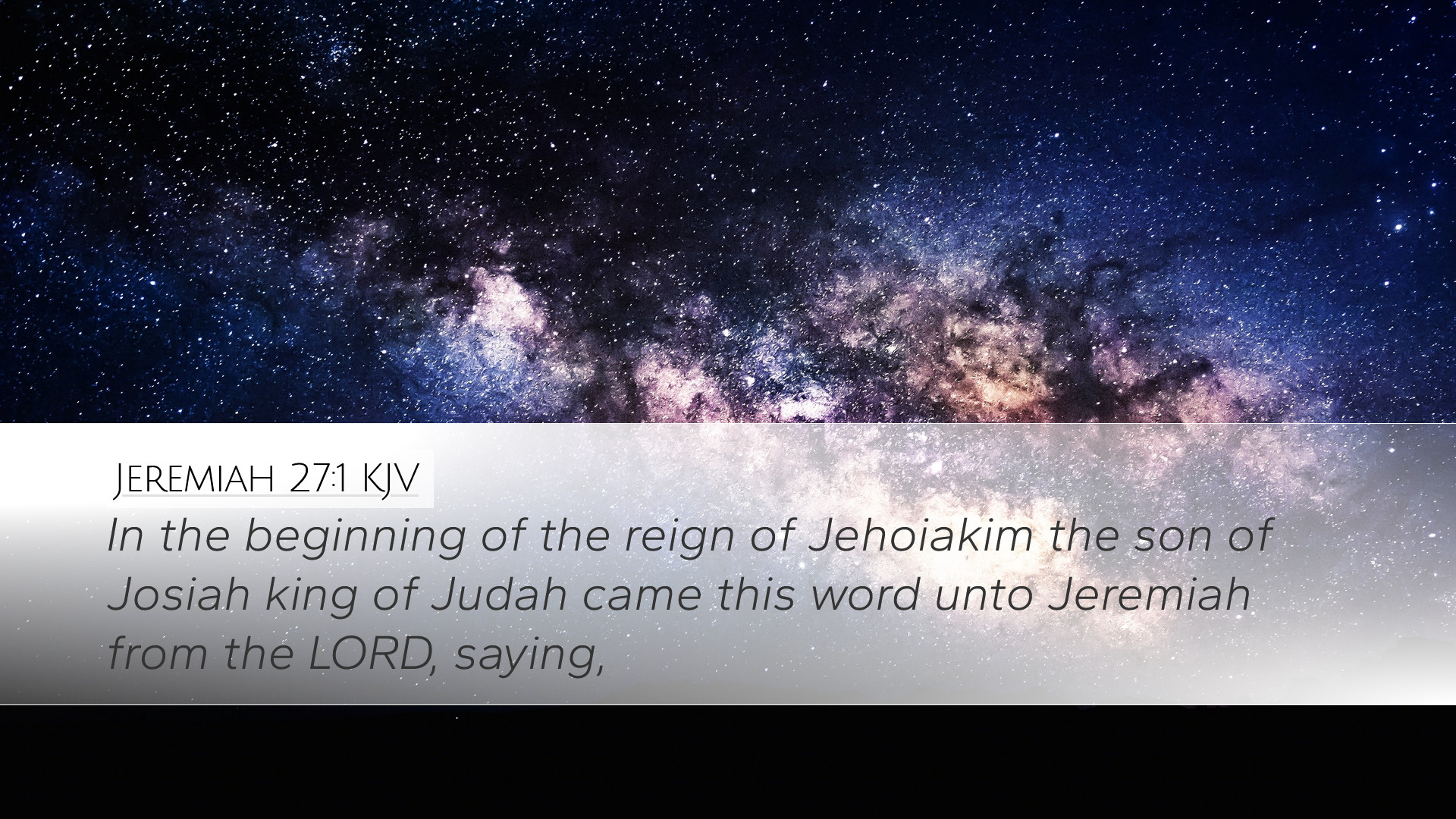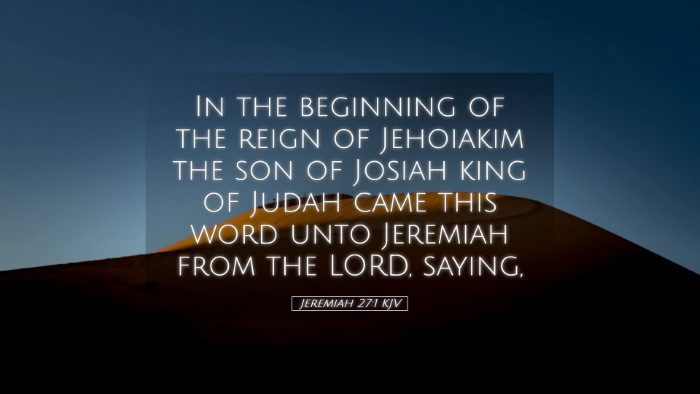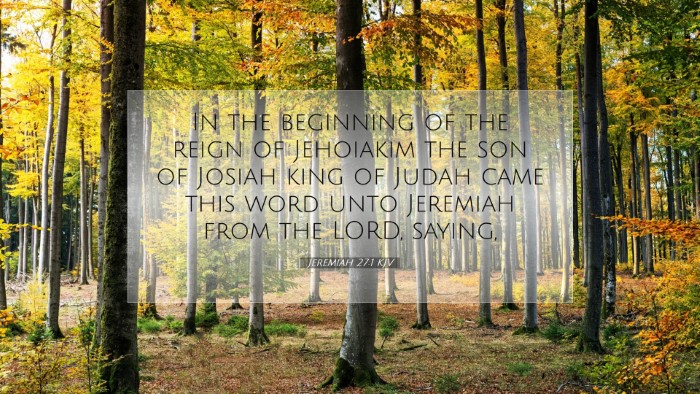Commentary on Jeremiah 27:1
Bible Verse: "In the beginning of the reign of Jehoiakim the son of Josiah king of Judah came this word unto Jeremiah from the Lord, saying," (Jeremiah 27:1, KJV)
Introduction
This verse serves as an important historical and prophetic setting in the book of Jeremiah. The context in which this word came to Jeremiah marks a critical time in the history of Judah, during the reign of King Jehoiakim. Understanding the nuances in this verse can benefit pastors, scholars, and students of the Bible in interpreting the broader themes of prophetic communication and divine authority.
Historical Context
Jeremiah prophesied during a tumultuous period for Judah, characterized by political instability and spiritual decline. King Jehoiakim, who reigned between 609 and 598 BC, was a vassal king under Egyptian and later Babylonian influence. This background is essential as it frames Jeremiah’s message as one directed toward a people caught between great powers.
- Political Dynamics: During Jehoiakim's reign, the pressure from powerful nations such as Egypt and Babylon shaped national policy.
- Religious Apostasy: The spiritual condition of Judah was declining, with rampant idolatry and a disregard for the covenant with Yahweh.
- Impending Judgment: Jeremiah's prophecies often contained stern warnings of the coming judgment and exile due to unfaithfulness.
Divine Communication
The phrase "came this word unto Jeremiah from the Lord" emphasizes the direct communication from God to the prophet. This detail is crucial as it affirms the authority of the prophetic message and the role of Jeremiah as an instrument for conveying divine will.
- Prophetic Authority: The designation of Jeremiah as the recipient indicates his prophetic calling and the weight of responsibility he bore for relaying God's message.
- God's Sovereignty: This sets a precedent for understanding how God intervenes in human history and communicates His plans, even amidst chaos.
- Call to Action: The Lord’s words to Jeremiah often served as a precursor to urgent calls for repentance and a return to faithfulness.
Theological Implications
Several theological themes arise from this verse that are significant for deeper reflection.
- Revelation: The nature of God's revelation to humanity through prophets is foundational in understanding how God communicates His will.
- Human Agency: God’s choice to speak through a human prophet illustrates the interplay between divine sovereignty and human responsibility.
- Judgment and Hope: Though the immediate context centers on judgment, the prophetic message often contains a hope for restoration.
Insights from Public Domain Commentaries
Matthew Henry
Henry emphasizes the grave context of this verse, noting the significance of Jehoiakim's rule and how it reflects the spiritual state of Judah. According to him, the words that came to Jeremiah shed light on the urgency of the prophetic message. Henry interprets this moment as a dire warning of the judgment to come, intertwined with the necessity of repentance for the people of Judah.
Albert Barnes
Barnes provides a more historical critique, exploring the effects of Jehoiakim’s alliances with surrounding nations. He understands this communication as a divine instruction against the backdrop of national insecurity. Barnes highlights the importance of the prophet’s role not only as a forecaster of doom but also as a guide toward understanding God’s sovereignty in times of uncertainty.
Adam Clarke
Clarke expands on the implications of Jeremiah's prophetic calling by considering the wider ramifications of his ministry. He discusses Jeremiah's message as both a warning and an invitation for Judah to return to their covenant obligations. Clarke's interpretation sheds light on the relational aspect of God’s communication, emphasizing that the Lord's messages were aimed at restoring His people rather than merely condemning them.
Conclusion
Jeremiah 27:1 encapsulates a moment of divine revelation during a critical historical period. The interplay of political tension, spiritual decay, and prophetic authority lays a foundation for understanding God’s ongoing relationship with His people. As we study this passage, it is essential to reflect on the lessons of accountability, the need for repentance, and the ever-faithful call of God to His people, even amidst judgment.
In conclusion, this verse invites pastors, theologians, and students alike to examine not only the historical context but also the timeless significance of God's communication through His prophets, encouraging a deeper engagement with the text and its implications for faith and practice.


